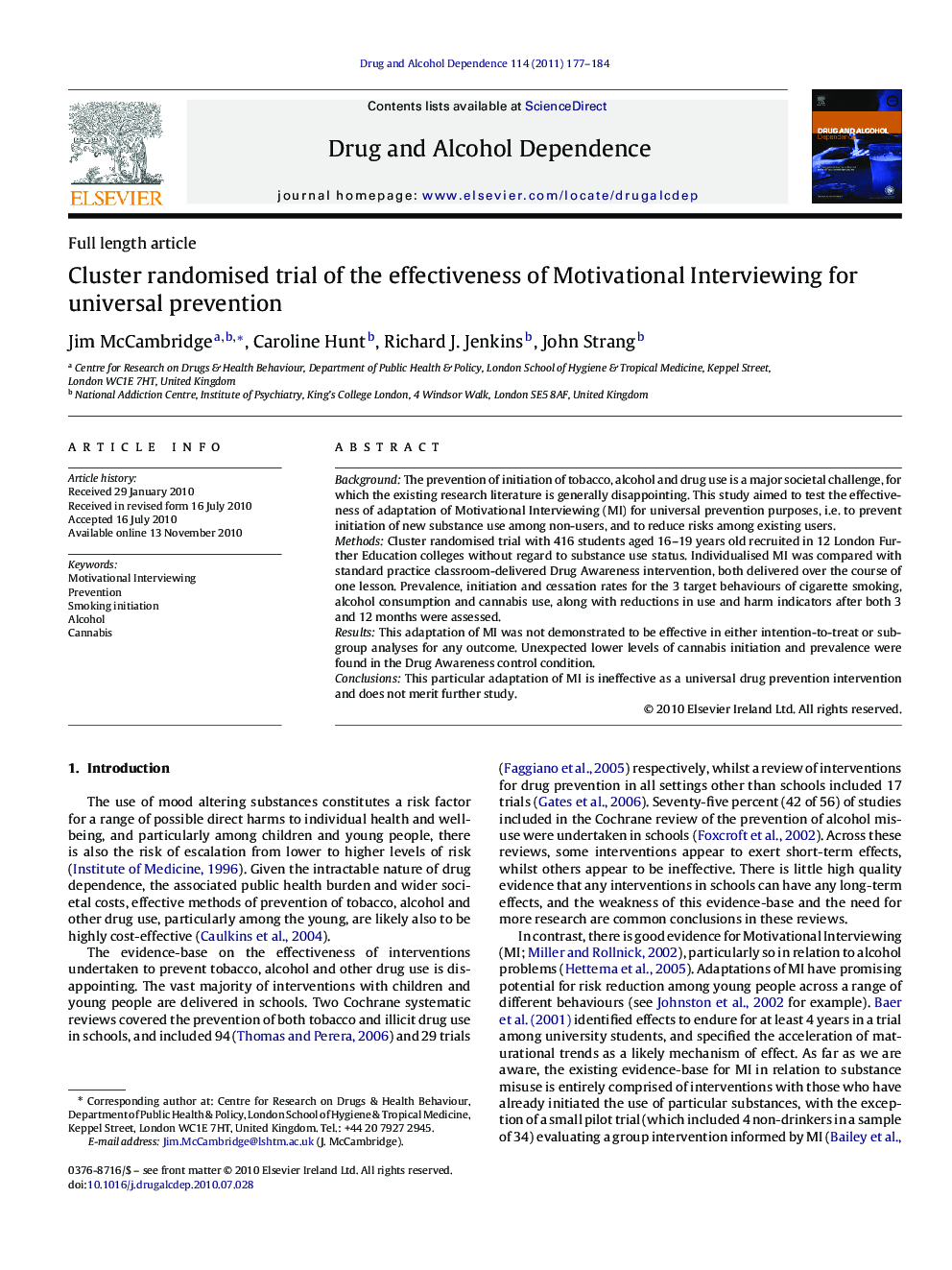| Article ID | Journal | Published Year | Pages | File Type |
|---|---|---|---|---|
| 1070346 | Drug and Alcohol Dependence | 2011 | 8 Pages |
BackgroundThe prevention of initiation of tobacco, alcohol and drug use is a major societal challenge, for which the existing research literature is generally disappointing. This study aimed to test the effectiveness of adaptation of Motivational Interviewing (MI) for universal prevention purposes, i.e. to prevent initiation of new substance use among non-users, and to reduce risks among existing users.MethodsCluster randomised trial with 416 students aged 16–19 years old recruited in 12 London Further Education colleges without regard to substance use status. Individualised MI was compared with standard practice classroom-delivered Drug Awareness intervention, both delivered over the course of one lesson. Prevalence, initiation and cessation rates for the 3 target behaviours of cigarette smoking, alcohol consumption and cannabis use, along with reductions in use and harm indicators after both 3 and 12 months were assessed.ResultsThis adaptation of MI was not demonstrated to be effective in either intention-to-treat or sub-group analyses for any outcome. Unexpected lower levels of cannabis initiation and prevalence were found in the Drug Awareness control condition.ConclusionsThis particular adaptation of MI is ineffective as a universal drug prevention intervention and does not merit further study.
